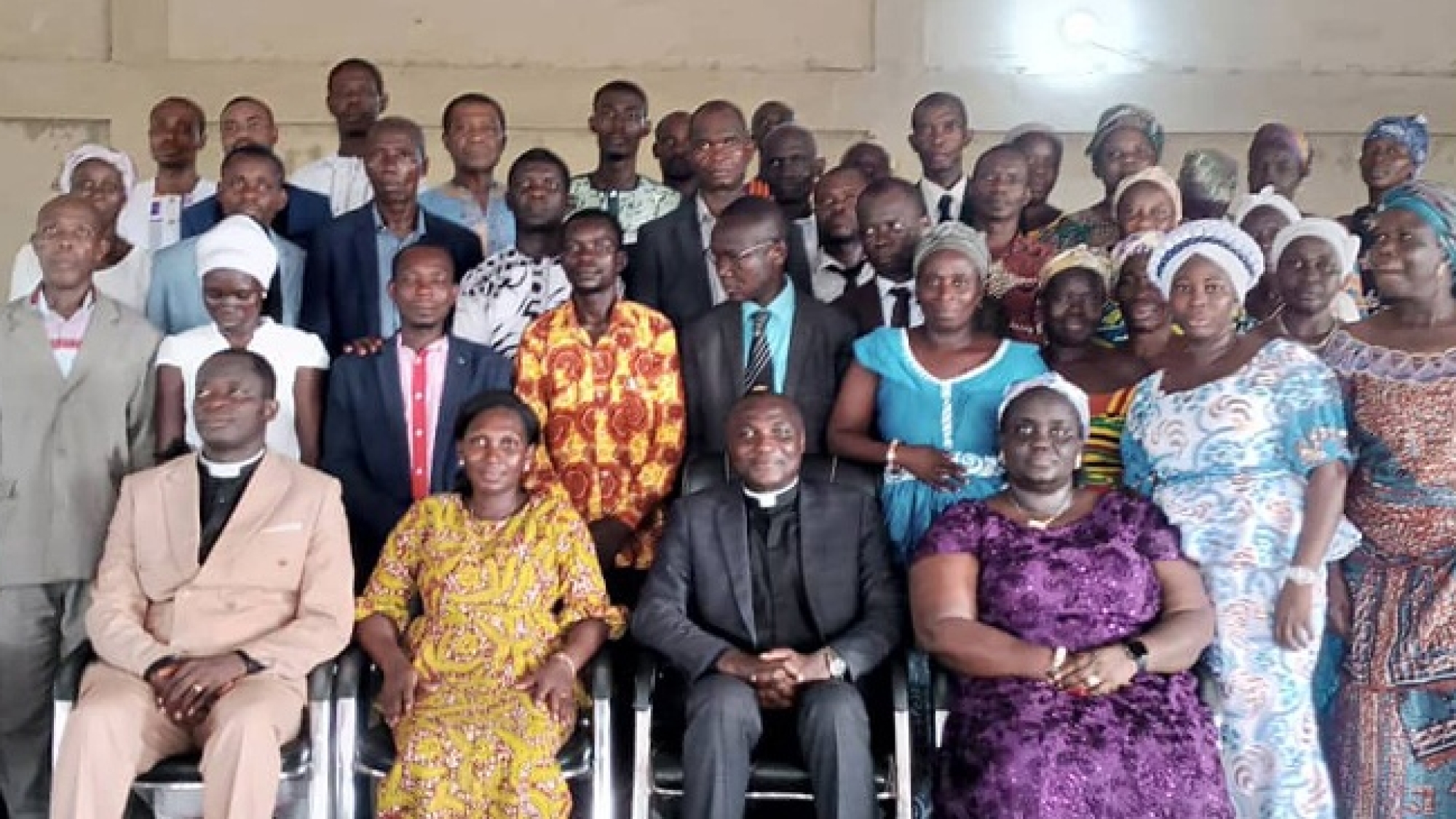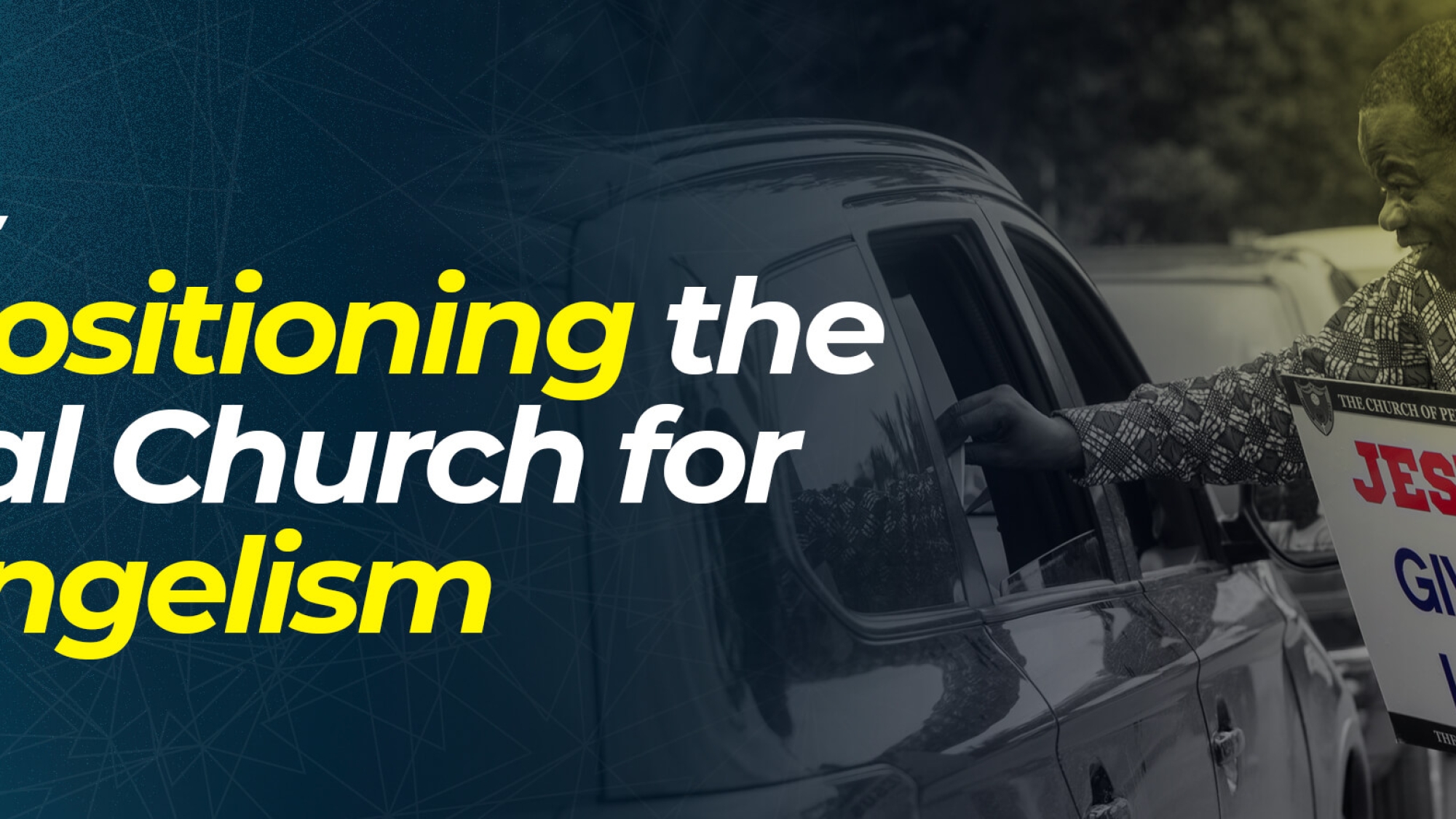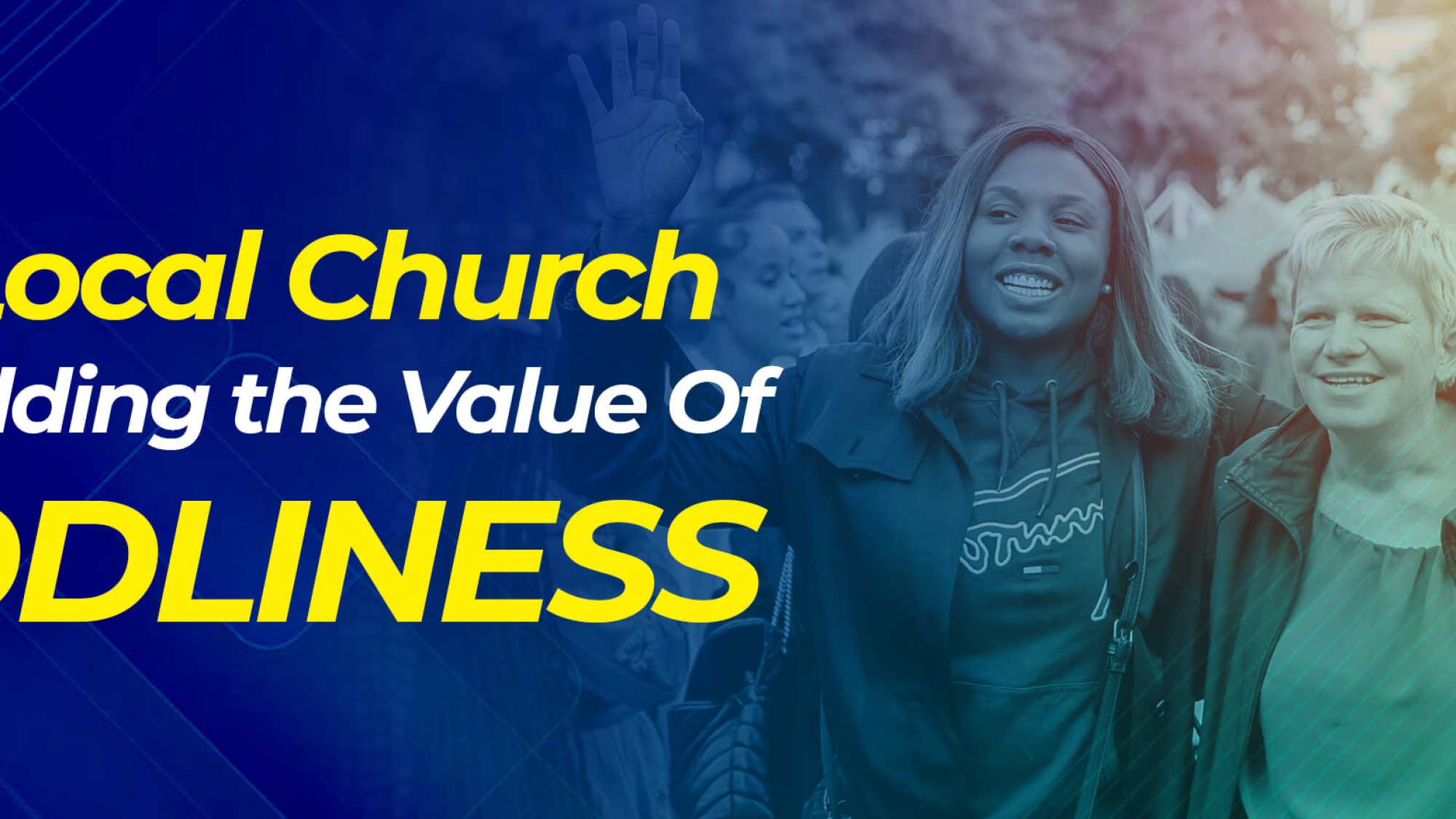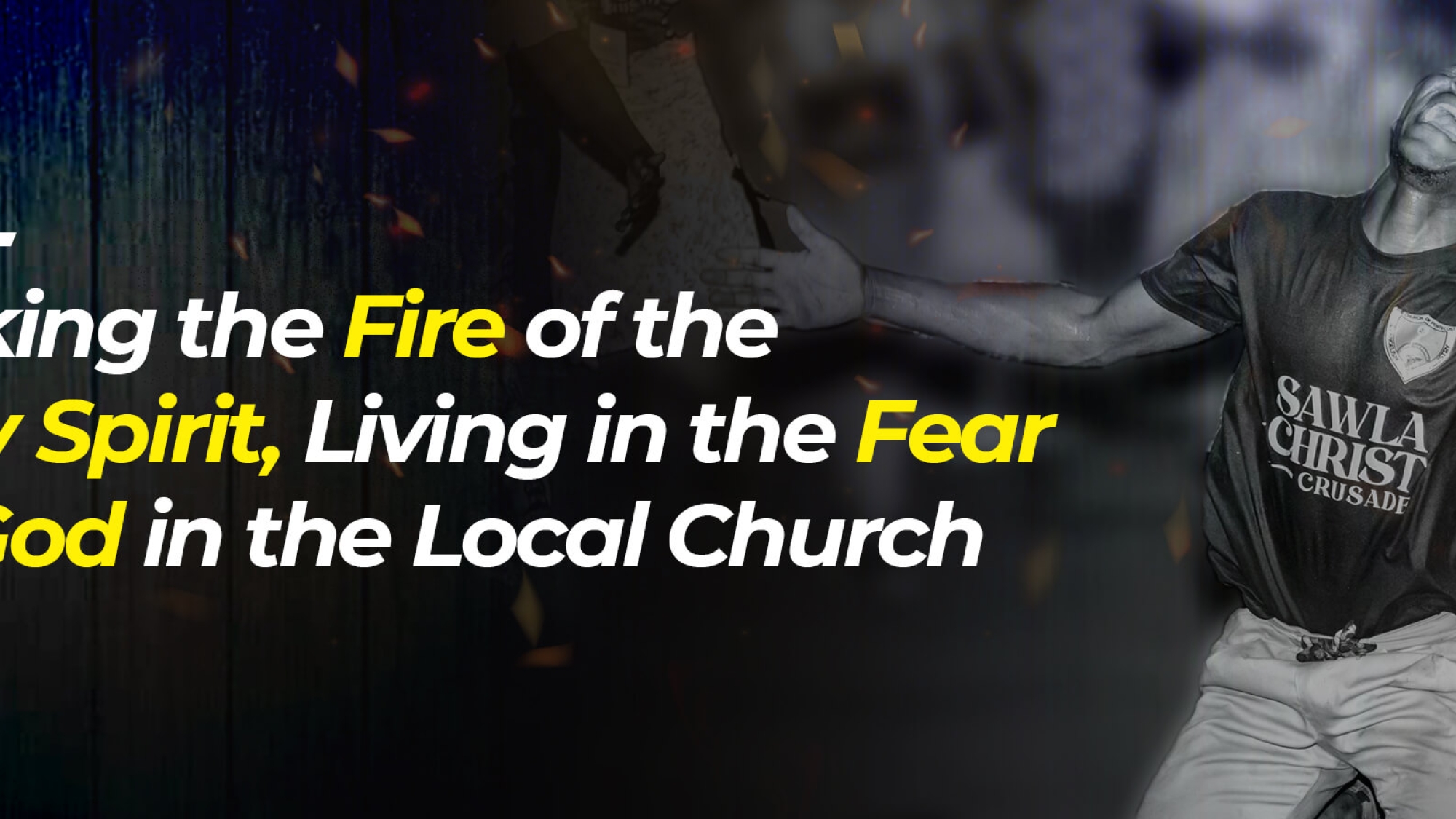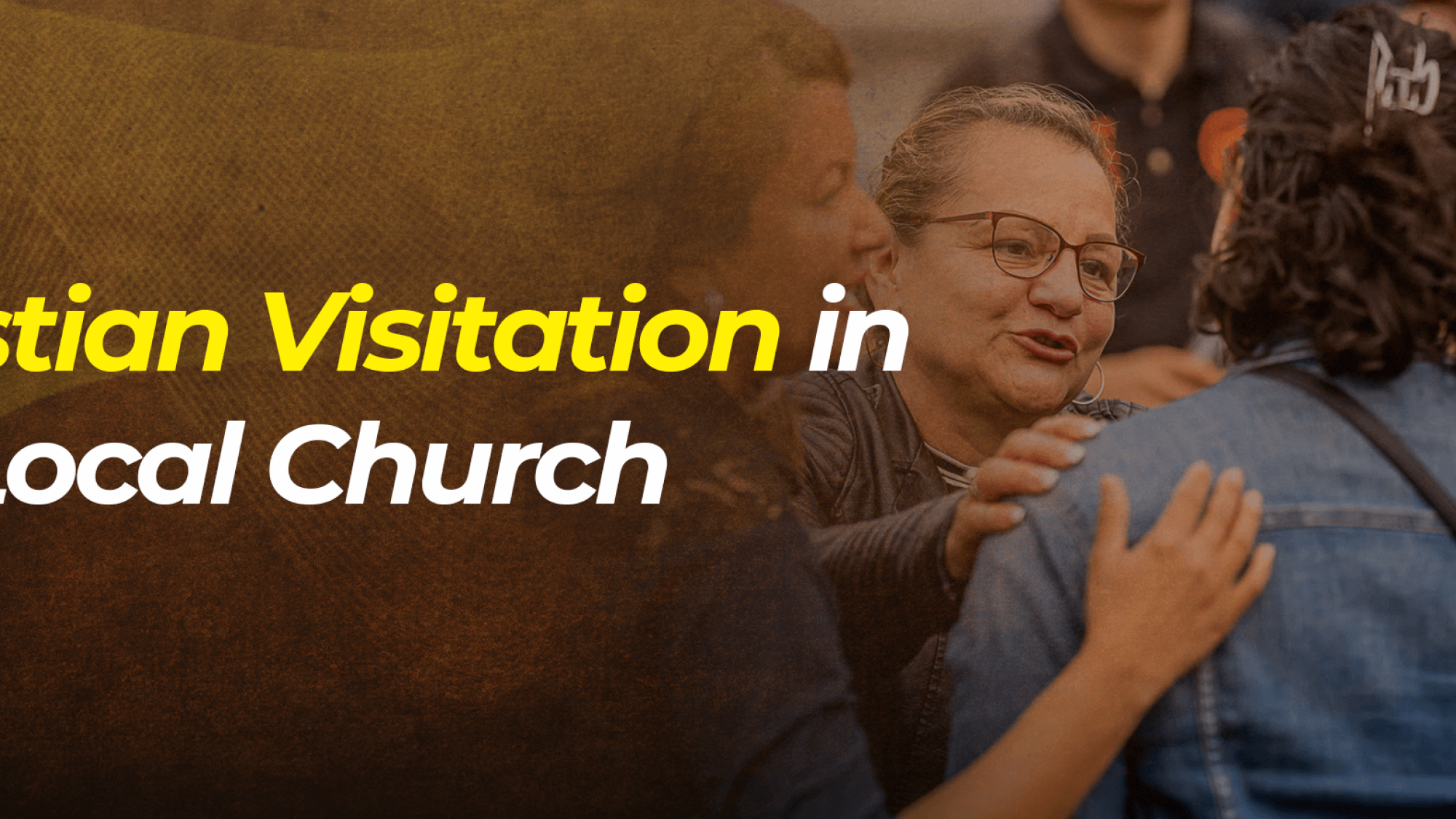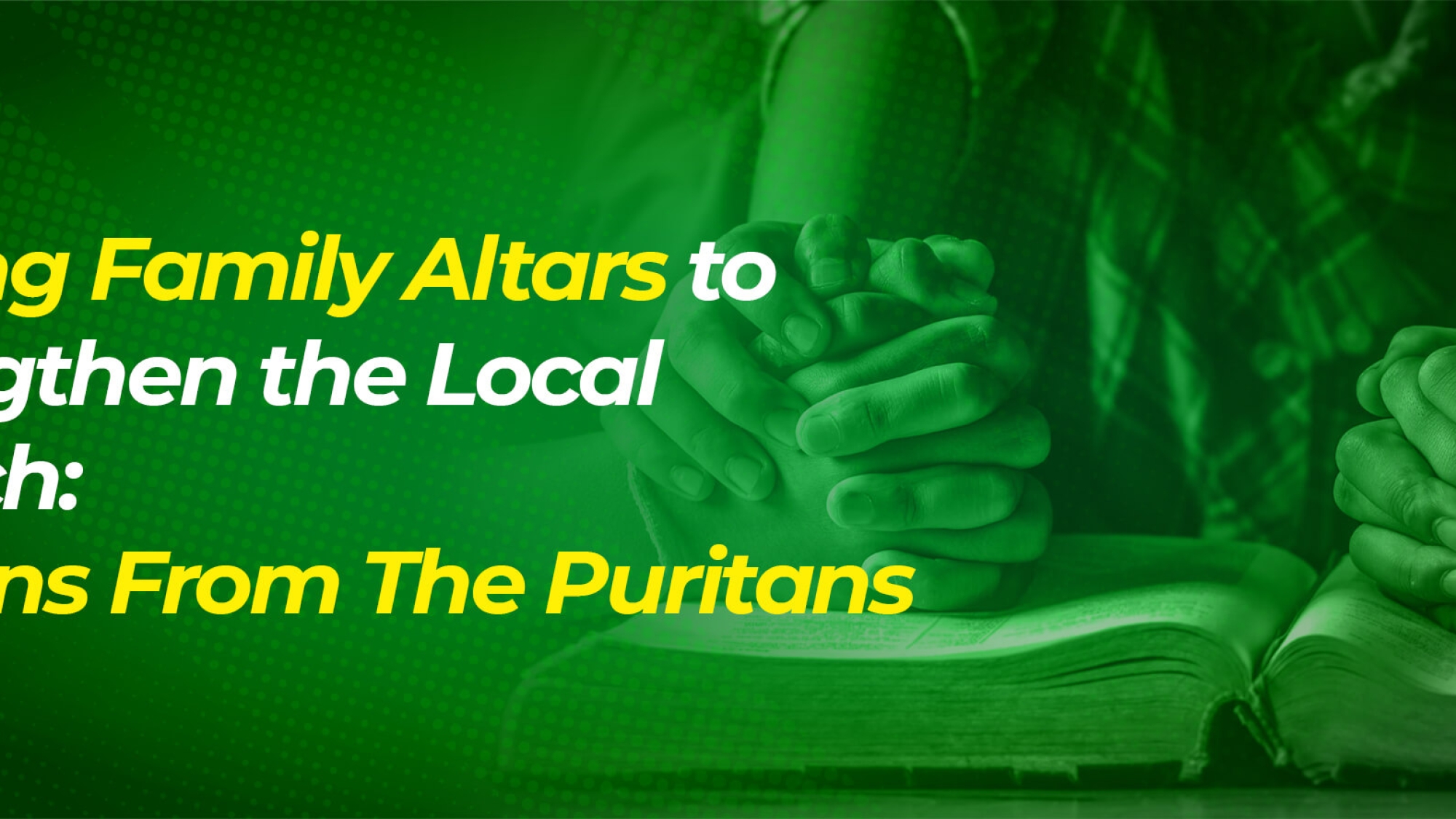- INTRODUCTION
The theme for 2023, “Repositioning the Local Church for Maximum Impact in the Nations” (Col. 2:6-7 & 1 Thess. 2:19-20) requires a discussion of the local church or assembly. As God’s agent in the world, the local church is the “vessel” through which God works to transform every sphere of society until the kingdoms of the world become the kingdoms of our God (Rev. 11:15, Dan. 7:27). Since the church must succeed in this assignment, it is essential that the ministry of the church is continuously evaluated so that the local church can be repositioned for the most possible impact in the world. In this paper, I will present an understanding of the local church as a family. I will answer the question of how the local church can understand itself as a family and what practical steps it must take to make maximum impact in the world. In the process, I will present a biblical view of the church as a family created by God for the purpose of attracting the world to God and transforming it by His values. I will also explain that the nature and function of the family can be understood better if it is considered as a social system. Finally, I will suggest practical steps members of the local church can take to demonstrate that they understand themselves as members of the family of God called to make maximum impact in the world.
- DEFINITION OF THE LOCAL CHURCH
In this paper, the local church refers to a group of believers or disciples of Jesus Christ who are related through consistent gathering and membership in a Christian denomination that serve as their spiritual family for nurturing, guidance, support and ministry or service (Eph.4:12-16). In the Church of Pentecost, this is what we call a local Assembly.
- Biblical View of the Local Church as a Family
Mainly, in the New Testament, believers understood the church as a family. They demonstrated this understanding by continuously meeting together in the Temple courts and at homes where they received teachings from the Apostles, prayed and broke bread together with glad and sincere hearts (Ac. 2:46). Consequently, they made maximum impact on the world of their day. For instance, the early church was described as having turned the world upside down (Ac. 17:6). In every town and city, they stood against the worldly values of their day, declared the truth about salvation through Jesus Christ, and lived lives that earned them the name Christian, in Antioch (Ac. 11:26). This shows that as a family, the NT church made maximum impact on their world. The question is, in our times, is it still necessary for the local churches to understand itself as family? If it is, how can the local church do this?
- The Divine Origin and Nature of the Local Church
The divine origin and nature of the church requires that in all ages, the local church must understand itself as a family and it can do so through the knowledge that God called the church for a divine mission or assignment in the world. Both the Old Testament and New Testament words interpreted as church; qahal and ekklesia, respectively, mean an assembly or gathering of people. In the OT, God chose to create a nation or a people for himself out of the numerous people groups in the world (Exo. 19:5-6). He chose one person, Abraham, who was obedient to Him and out of Abraham created a family and later, the nation Israel (Gen. 18:18, 22:18). God told them “Now if you obey me fully and keep my covenant, then out of all the nations you will be my treasured possession” (Exo. 19:5).
In the New Testament, the church is understood as the people God has called out to be his children. Since the time God came on earth and dwelt among humans as Jesus Christ the Son and died on the cross to save the world (Jn. 4:42; 1Jn. 4:14), the process of becoming members of God’s family broadened and the criteria changed. God enables all people from all races to believe in His Son Jesus Christ as the saviour of the world (Rom. 3:23-26). Whoever so believes is given the power to become a child of God – a member of God’s family (Jn. 1:12; 1 Thess. 1:4; 2 Thess. 2:13-14). “So in Christ Jesus you are all children of God through faith, for all of you who were baptized into Christ have clothed yourselves with Christ. There is neither Jew nor Gentile, neither slave nor free, nor is there male and female, for you are all one in Christ Jesus. If you belong to Christ, then you are Abraham’s seed, and heirs according to the promise” (Gal. 3:26-29). Thus, race, gender, ethnicity (tribe) age or social backgrounds do not isolate anyone because all believers are one family in Christ. God is the Father, and all believers are His children.1 This means God chose the Church (Jn. 15:16) and send it into the world to possess it (Jn. 17: 18; 20:21).
While universal in nature, the Church has local presence. Though scattered around the world, local churches share a common, communal, heavenly destination.2 . On behest of Jesus Christ, God sends the Holy Spirit to come and live in the members of the local church forever (Jn. 14:25-26, 16:4-14; Acts 2:1-41). The creation of the church and its sustenance is all through the Holy Spirit who gives life and gifts to enable local churches to make maximum impact in the world (Eph. 4:11-16; 1Cor. 12: 4-11; Rom. 12: 6-8). Therefore, local Assemblies as we call them in The Church of Pentecost must continue to understand themselves as a family.
3. THE SOCIAL SYSTEM VIEW OF THE FAMILY
Systems thinking (theory) is one of the effective ways of explaining the nature and function of the family. The family can be conceptualised as a system or a dynamic unit consisting of a group of interdependent and co-ordinated members who influence each other directly and indirectly through their communication and behaviour or interactions.3 The family systems approach emphasises the idea that families are continuous entities, with rules, beliefs, and values that shape members’ behaviour over time. Such rules give power, induce guilt, and control behaviour. A family is considered as a system because it is made up of interrelated members, who show coherent behaviours. Children membership in the family is either by birth or adoption. Similarly, membership in the local church is through both new birth (Jn.3:3-6) and adoption (Eph. 1:5, Gal. 4:4-5).
Generally, a nuclear family consists of a married couple as parents and their dependent children while the extended family includes aunties, uncles, nieces, nephews, and grandparents. Undoubtedly, marriage is the bedrock of the family. The scriptures explain that the mystical marriage or union between Jesus and the church is indissoluble (Eph. 5:25-27). The church is married to Jesus and the members of the church are the children of the family. Research has widely documented the negative impact of marital discord and conflict upon the quality of parenting and upon child behaviour and development.4 For instance, a negative marital relationship can make parents who did not have secure attachment with their parents more prone to poor parent-child relationships. On the other hand, a positive marital relationship acts as a buffer that helps to break negative intergenerational cycles in family dysfunction.5 The spiritual exercises that nurture the members and the relationship between the church and Jesus Christ must be carefully evaluated continuously. Repentance from sin and confession of faith in the Jesus Christ must be genuine with signs of true regret following.
Normally, family members have regular interactions, and they are interdependent on one another. Each member influences other members and is in turn, influenced by others. These relationships are very important for the proper functioning of the family and for the social skills and emotional intelligence its members need to function in the wider society. Those who consider the family as a system widely believed that there is a strong relationship between a person’s behaviour and the behaviour of other members of their family.6
Having said that the family is a social system, it is important to state that the local church is not simply a social system as such. It is a socio-Spiritual system because of its divine nature. Being socio-Spiritual means that though it is a group of people networked through committed relationships, its origin, existence, and sustenance is determined by the members’ constant dependence on God and their interdependence on each other (Rom. 12:4-5).
The family is very important because it contributes to and determines the social cohesion and health of society. Researchers have acknowledged that the family is one setting where human development occurs constantly.7 Members of the family share resources and responsibilities such as living together, pooling economic resources, and caring for the young ones among them, helping them to grow into responsible members of the wider society. The early church practised sharing of resources in ways that supplied everyone’s need (Ac. 2:44-45). Consequently, the local church grew and multiplied.
Therefore, it is essential for every born again Christian to belong to a Bible believing and faith practicing local church where they can be supported and shaped into the stature of Jesus Christ. Moreover, the local Assembly is the most powerful family in the world because it is created by God, guided by the word (Son) and empowered by the Holy Spirit. The accumulative power and Spiritual gifts of the members of the local Assembly makes it a great force to reckon with.
3.1. The Spiritual and Social Functions of the Local church
The spiritual and social purposes of the local church also help us to experience it as a family. Normally, every human being is born into a family or most often, has parents who support the child to develop spiritually, socially, and emotionally. In the same way, when one is born again, they must join and belong to a local church where they are taught and supported to grow into spiritual maturity. Contemporary attitudes of people who see local churches as religious supermarkets where they go to choose and pick their products without necessarily belonging is unbiblical. For instance, some believers would only go to a local church on Sunday or only attend prayer meetings for their personal benefit without participating in the full life of the family. It is said that children do not choose their parents or siblings. But they are expected to accept parents and siblings as they are and obey, respect, and love them. Belonging to a family is a whole package and members must accept this fully.
Family members support each other and do not expose each other to public shame or ridicule. When members of the family have issues, they settle it among themselves without people of other families hearing or knowing about it.
Just as the family system function to support and shape its members into becoming responsible people in their society, so also, does the local church has a divine mission to the world which it must support its members to fulfil. The mission the church has is that through it the entire world will be blessed. “Scripture foresaw that God would justify the Gentiles by faith and announced the gospel in advance to Abraham: all nations will be blessed through you (Gal. 3:8). Referring to Christians generally, Luke stated in Acts, “And you are heirs of the prophets and of the covenant God made with your fathers. He said to Abraham, ‘Through your offspring all peoples on earth will be blessed” (Ac. 3:25). Moreover, Jesus Christ said “peace be with you. As the Father has sent me, I am sending you” (Jn. 20:21). The divine nature of the church shows that God is in his trinity saving the world and the local church is his vessel for doing so.
3.2. The CoP Local Assembly as Family
In the CoP, the local Assembly focuses mainly on the spiritual activities that help a new convert to grow from birth to maturity. People join the local church through evangelistic activities of members. New converts are taken through water baptism and the baptism in the Holy Spirit baptism. They are encouraged to participate in the Lord’s Supper, Home Cell membership, Bible study for their nurture into maturity. Every member is taught to participate in the monthly Lord’s Supper. Those who fail to participate in the Lord’s Supper for three consecutive months are approached and helped to return to full fellowship. Members who cannot attend meetings in person are visited and given the communion. Members taught and encouraged to pay their tithes and various offerings at a local Assembly.
Adult members marry in a local Assembly and their children are dedicated to the Lord at an Assembly. When children are thirteen years of age, they are given the opportunity to accept Jesus as their personal Lord and Saviour and become adult members when they are eighteen years old. The local Assembly has been the epicentre where members are discipled to follow Jesus Christ. In the CoP, female members are called sisters and male members are called brothers. The Officers (Elders., Deacons and Deaconesses) of the Assembly serve as guardians and older siblings for new and younger members in the Assembly. All the key performance indicators of ministry (which can be grouped under discipleship and worship) take place at the local Assembly.
However, the focus of Vision 2023 has been to intentionally and directly connect the worship and discipleship that happens at the confines of the local Assembly to all spheres of life where members are engaged throughout the week. In this way, activities at the local church are not an end in themselves. They become means for preparing members to serve in and possess – the marketplace and institutions of local and national governments etc. It is when members of the local Assembly are metaphorically experienced as salt and light that they make impact in the world.
4. THE LOCAL CHURCH’S MAXIMUM IMPACT IN THE WORLD
The maximum impact of local churches is the goal for the theme for 2023. To make maximum impact here means to have most influence through consistent use of biblical values and principles in all conducts and deeds. Thus, the local church must always ask, how do the activities; the services, practices impact the world around us? Or how does it prepare members of the family to have most influence in the world? Since the church exists to influence the world, everything it does must be evaluated from this objective. So, what steps should the local church take to ensure that they make maximum impact in the world?
4.1. Know and Understand their Purpose
For any local church to make maximum impact in the world, it must know and understand its calling. Every local church must know that God has called them into the ministry of reuniting their communities to God (2 Cor. 5:18-21). This is how all nations will be blessed through the local church. For this to happen, members of the local church must understand themselves as a family and live as such to provide the necessary support for each other to influence the way things are done in the world. Just as families support each other in every way possible for the growth and flourishing of its members, so also must local churches live as a family.
4.2. The Interdependence of Members in the Local Church
As mentioned above, in a functional family, members depend on each other. Local churches must firstly depend on God by remaining in Jesus Christ. Jesus Christ said “I am the vine; you are the branches. If you remain in me and I in you, you will bear much fruit; apart from me you can do nothing” (Jn. 15:5). It means the local church cannot function according to God’s purpose or intentions without being constantly connected to God in Christ by active faith. Everything the local church does, whether prayer meetings, social events, outreaches etc., must help the members to remain in Christ and with each other. Also, members should be able to depend on each other as a family that supports, encourages, and guides one another in every way possible. “For just as each of us has one body with many members, and these members do not all have the same function, so in Christ we, though many, form one body, and each member belongs to all the others” (Rom. 12:4-5). Belonging means interdependence for mutual benefit so that each one will fulfil their part of the divine assignment. Self-centredness and individualism are not Godly behaviours and should not be allowed in the family or local Assembly. Possessing the nations will be a hollow slogan if the church members work in isolation of all others. Unity and a collective sense of purpose is a hallmark of a good family.
4.3. The Supporting Role of the Family
The experience of family living is the single greatest influence on an individual’s life. As shown above, people’s basic needs for love, security, belongingness, and intimacy are satisfied in the family context. In families where there is closeness, trust and support, there is good behaviour towards members within the family and with people outside of the family. Apostle Paul taught that an individual believer or Christian is part of a larger group of a family network (1 Cor. 12) and must support others. Apostle Peter also referred to NT believers as living stones placed on each other as blocks for building God’s temple (1 Pt. 2:4-10). Just as a new-born child becomes a member of a family, so also, when a person is born again, they become part of the family of God and must henceforth be held together in a supporting and enabling environment through the bond of peace in the Holy Spirit. This can be done through follow-ups, small groups (squads) and intentional mentoring.
Sadly, sometimes, instead of members acknowledging one another’s gifting and celebrating and supporting them, they compete in the local church just as it is in the world. People compete for allegiances, loyalty, recognition, entitlement etc. These behaviours are features of a dysfunctional family. If we want to possess the nations, through transforming relationships and behaviours of other people in all the spheres of life, then it is crucial that we improve the way we relate in the local church. For instance, how open are our local churches when it comes to dealing with the failures of members? How transparent are we when it comes to leadership failures? How loving and understanding are we when we deal with each other’s shortcomings? Every good family is supportive of its members to grow and flourish.
4.4. Leaders Must Be Consistent in Biblical Values and Principles
To make a maximum impact in the world the life of members of the local church must be consistent with the values they espouse. As mentioned above, members of a family are influenced by the behaviours of other members, especially parents. The OT shows how the sins of parents become generational patterns in their lineage. For example, when Abraham lied twice that Sarah was not his wife, (Gen. 12: 10-20, Gen. 20), his children and grandchildren also lied in similar ways. This shows that parental relationship fosters repetitive behaviour patterns in the family. The lies run through Abraham’s lineage for four generations.
As a system, the patterns of behaviour of members in the family affect other people in the family. In the local church, no one should be allowed to say, “it is my life and do what I want with it”. Jesus Christ teaches that the kingdom is like yeast that has the capacity to affect the whole dough (Matt. 13:33). Moreover, Apostle Paul stated that a little yeast affects the whole batch of dough (Gal. 5:9). Although Christians are called to be free, we should not use our freedom as licenses to indulge the flesh. Instead, we should serve one another humbly in love (Gal. 5:13-14). Therefore, parents and older members of the family must be good examples for the younger ones to follow.
5. MAKING MAXIMUM IMPACT THROUGH SERVICE
It has been explained above that God chose the church for a purpose – a mission in the world. In his wisdom, God commands the church to worship Him (Ex. 20:1-3, Ex. 34:14; Deut. 6:4-6).) It is by worshipping God that the nations of the world will be blessed through the local church. The local church’s maximum impact in the world depends on its knowledge and understanding of worship. How should the local Assembly understand worship and what steps should be taken to make maximum impact?
5.1. Understanding Worship as Service
The local church must understand that worship is about service. It is not meant to be simply a Sunday morning or mid-week activity. Service is everything we do in our lives throughout the week, wherever we are. Service or worship requires a total lifestyle of faithfulness to God.8 This is what Jesus Christ referred to as worshipping in Spirit and truth (Jn. 4:24) when he taught that the Jews the Samaritans’ debate about the right place to worship God was a total misunderstanding of worship and was unnecessary.9 Worship is meant to keep sinful humanity in constant relationship with a faithful and holy God for Him to use them to bless other nations and peoples.10 More importantly, worship is about serving God with our lives through acts enabled by the Holy Spirit. So, for the church to make maximum impact in the world, local Assemblies must support its members to serve God by serving the needs of people in our societies.
6. STEPS TO MAXIMUM IMPACT: UNITING THE WORLD TO GOD THROUGH SERVICE
The most effective way of influencing the world through the values and principles Jesus taught is by being a blessing in the world to mitigate the effects of the curses Jesus Christ abolished on the cross. Usually, the local church sees its evangelistic activities as a way of uniting people to God. However, I propose that for the local church to make a maximum impact in the world, it needs to be a blessing through service in all kinds of ways.
This implies that the world without Christ is under the curse of Adam. Until people believe in Jesus Christ as the Saviour of the world, they are still under the divine curse (Rom. 5:12-15). The world is separated from God because of the curse of the fall. Curses invoke a supernatural power that inflicts harm or punishment on people. Hence, the fall of Adam and Eve brought pain, harm, and punishment on the world. The first outcome was about shame. They saw that they were naked (Gen. 3:7). The second issue is fear. When they heard the appearing of God in the garden, they went into hiding because they were afraid (Gen. 3:9-10). These are painful emotions that remain in the world today. They are experienced by many people in different ways.
Many people are anxious and afraid in our world today. The third curse was a break in relationship – a broken heart. Their relationship with God was broken and their relationship with each other and with God’s creation were also broken (Gen. 3). The curses also introduced physical pain through childbirth and hard work in tilling the land (Gen. 3: 17-19). In various ways, all the difficult issues this world continues to deal with, originate in the fall. For instance, what we call today as basic human needs; food, water, shelter, (security) and love became human needs only after the fall of Adam and Eve in the Garden of Eden. Prior to that God provided all they needed.
Therefore, apart from going into the community to propagate the gospel in evangelistic outreaches, the local church must send its members deliberately into the world to mitigate the effects of the curse. This can be done through identifying the opportunities presented in the world by the fall. The needs brought about by the fall of humanity from the image of God, continue to provide several opportunities for service.
6.1. Dealing with Curses through Service
Thankfully, the power of curses has been abolished by Jesus Christ on the cross (Col. 2:13-15). However, their ramifications remain in the world. Through his death Jesus Christ has restored Christians to our original image in God and given us power to intentionally address the consequences of the curses of fallen humanity.
Every good service rendered in this world addresses a need by taking away shame, pain, hatred and bringing love, care, and comfort, in one way or the other. people who work as cleaners, teachers, nurses, pharmacists, doctors, hawkers, salespeople, labourers, engineers, mechanic, scientists, seamstress, tailors, police, lawyers, accountants etc, are all dealing with one need or the other. The local church’s maximum impact in the world depends on how members of the church family are supported, encouraged, and guided to serve in these roles to provide the most effective and efficient service.
It is in meeting these needs through the love of God and the leadership of the Holy Spirit that the local church can make maximum impact on the world. Therefore, local churches must teach their members to identify their area of calling or vocation and work diligently to avert the pain, misery, lawlessness, racism, broken heart, disease, poverty, hatred etc in the world. Although Jesus Christ died to atone for the sins of the world, we need to understand that these troubles are still battles we must fight and win by lessening the pain and suffering and increasing love and care in the world.
The issues of shame for being naked and the need for clothing led to the whole clothing/fashion industry we have today. Designers, seamstresses, tailors, weavers, pressers, and many others respond to this need by their services. That is why I find it ironic that some modern fashion designers prefer designs that almost show nakedness instead of covering it. Again, fear requires the need for security and protection. This curse also presents huge opportunity that led to the building construction industry, law enforcement agencies such as security guards, police, and the military.
We need to be able to travel from one place to the other to either explore new places and new things or to visit loved ones or change our location. Construction of roads, bridges, airports, building of and repairing cars, ships, planes, boats etc became necessary and has provided opportunity for many professions and careers.
Broken relationship and hatred remain a major issue for the world. How do we live together and prevent people killing each other as Cain did to Abel (Gen. 4)? Finding solutions to this curse brought about the whole field of the judiciary – law and order. Thus, lawyers, judges, and magistrates interpret and apply the laws while police and other security agencies enforce the laws. To prove that the death of Jesus has overcome the power of hared introduced in the Garden of Eden, members of the local church must be helped to fight hatred, bigotry, discrimination, racism, and tribalism.
Throughout history communities have found ways to mitigate pain. Today, we have hospitals where professionals such as nurses, doctors, clerks, pharmacists, etc. try to solve the problem of pain and disease. It is through their services (work) that they can show they love one another. It is through service that we can be a blessing to overcome the pain in this world. Also, through service (work) we can show that we fear and love God.
6.2. How Can Members of the Local Church Make Maximum Impact Through Their Service?
- By seeing service as defeat over curse
- By seeing service as demonstration of obedience to God
- By seeing service as demonstration of faithfulness
- By sacrificing to serve others
Sacrifice is an act of giving up something valuable for the sake of something else regarded as more important or worthy of the sacrifice. For instance, giving up your comfort to suffer for a good cause or for the sake of another person. Jesus sacrificed himself to save us from sin (Phil. 2: 6-8). Paul sacrificed his comfort and status to preach the gospel to the Gentiles. Whatever was gain to Paul he considered loss for the sake of Christ (Phil. 3:7).
Many others such as missionaries, freedom fighters, politicians, academics, inventors, and entrepreneurs make big sacrifices to make impact in this world.
- Such people have great passion for change in their profession, church, their community, and their country
- They do not follow the crowd and are not human pleasers
- They always care and make effort to ease other people’s pain and suffering
We should exercise our gifts as much as possible even if our society devalues those gifts. God’s appraisal of us at the end of our lives is to be most cherished than what the world thinks about us.11 Therefore,
- Members of the local church must demonstrate unwavering loyalty to Jesus Christ by being steadfast in the hope that their works will surely be rewarded. Since family members do not quit their membership even when they are unhappy with things in the family, so also, Jesus Christ expects members of local churches to be loyal, no matter what. They should remain members of the family.
- Like a parent waiting patiently and praying to support a misbehaving child hoping the period of misbehaviour will pass, local church leaders must lovingly correct and discipline weaker members of the family when their lifestyle go against the teaching and testimony of the gospel of Jesus Christ.
- As family members, local church members should not focus on instant gratification and reward for their service in the Lord. They should patiently endure, knowing that when they rest from their labour on earth, their deeds will follow them into eternity.
- Local churches must seek and support the weak and needy amongst them.
“Do you see someone skilled in their work? They will serve before kings; they will not serve before officials of low rank” (Prov. 22:29). Serving before kings means being recognised for our service and honoured to serve.
7. CONCLUSION
In this paper, I have discussed the need for the local church to understand itself as a family. I have shown that an effective way of understanding the local as a family is to consider it as a system networked for support, nurturing and protection. I have clearly shown that the church is God’s initiative for his own purpose in the world and I have also shown that the most effective steps to making maximum impact in the world is through service. Service has been explained as the way of being a blessing by lessening the effects of the curses, that is, shame, pain and suffering in the world.
BIBLIOGRAPHY
Alexander T. Desmond and Brian S. Rosner, (eds) New Dictionary of Biblical Theology. Leicester: IVP, 2000.
Cohn D. A. et al. “Working Models of Childhood Attachment and Couple Relationships”. Journal of Family Issues, 13 (4), (1992): 432-449.
Desmond and Rosner (eds). New Dictionary of Biblical Theology. Leicester: IVP, 2000.
Doriani, D. M. Work that Makes a Difference. Philipsburg: P&R Publishing 2021.
Fincham, F.D. “Child Development and Marital Relations” Child Development, 69. 1998.
Grudem, Wayne. Systematic Theology. Leicester: IVP, 2000.
Lamb M. E. (Ed.). The role of the father in child development. New York: Wiley & Sons, 2004.
Minuchin, Patricia. “Cross-Cultural Perspectives: Implications for Attachment Theory and Family Therapy”. Family Process 41 (3), 2002.
Shively T. J. Smith. Strangers to Family Diaspora and 1 Peter’s Invention of God’s Household. Waco, Texas: Baylor University Press, 2016.
Smith S. (Ed.). The Wiley Blackwell Encyclopaedia of Family Studies Vol. 2. New York: Wiley-Blackwell Publishing, 2016.
Walsh, Bridget A. Lydia DeFlorio, Melissa M. Burnham, and Dana A. Weiser, Introduction to Human Development and Family Studies. London: Routledge, 2017.
William Barclay, The Gospel of John. Edinburgh: St Andrew Press, 1975.






